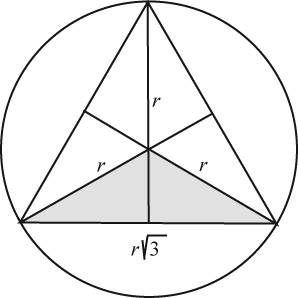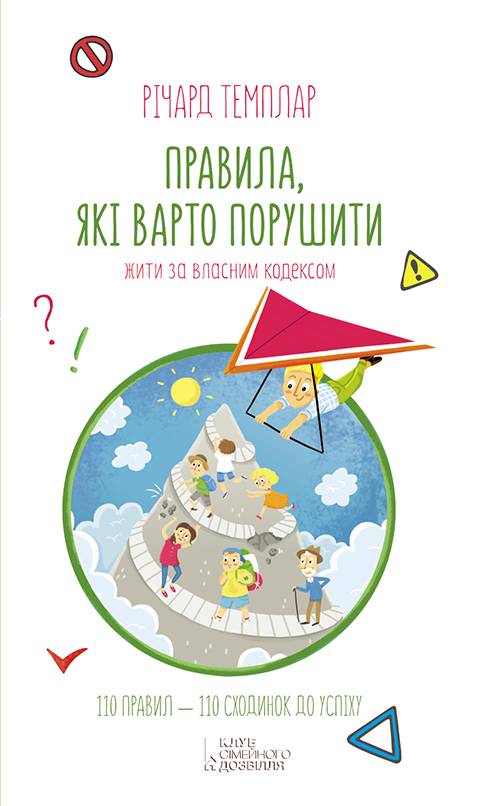Читати книгу - "Чому Захід панує - натепер"
Шрифт:
Інтервал:
Добавити в закладку:
Gibson, Daniel, et al. "Creation of a Bacterial Cell Controlled by a Chemically Synthesized Genome." Science328 (May 20, 2010), doi: 10.1126/science. 1190719.
Giles, J. A., ed. Matthew Paris's English History from the Year 1235 to 1273. London: H. G. Bohn, 1852.
Gilbert, М. Thomas, et al. "DNA from Pre-Clovis Human Coprolites in Oregon, North America." Science320 (2008), online edition, 120b.
Gillingham,John. Coal, Steel, and the Rebirth ofEurope, 1945-1955.Cambridge, UK: Cambridge University Press, 1991.
———. European Integration, 1950-2003: Superstate or New Market Economy? Cambridge, UK: Cambridge University Press, 2003.
Gittings, John. The Changing Face of China: From Mao to MarketOxford: Oxford University Press, 2005.
Godman, Peter. Poetry of the Carolingian Renaissance.Norman: University of Oklahoma Press, 1985.
Goebel, Ted, et al . "The Late Pleistocene Dispersal of Modern Humans in the Americas." Science319 (2008), pp. 1497-1502.
Goitein, Shlomo. A Mediterranean Society: The Jewish Communities of the Arab World as Portrayed in the Documents of the Cairo Geniza. 5 vols. Berkeley: University of California Press, 1967-88.
Golas, Peter. "The Sung Economy: How Big?" Bulletin ofSung-Yuan Studies 20 (1988), pp. 90-94.
———. Science and Civilization in ChinaV: Chemistry and Chemical Technology. Part 13: Mining.Cambridge, UK: Cambridge University Press, 1999.
Goldman, Marshall. Petrostate: Putin, Power, and the New Russia.New York: Oxford University Press, 2008.
Goldman, Merle. From Comrade to Citizen: The Struggle for Political Rights in China. Cambridge, MA: Harvard University Press, 2005.
Goldstone, Jack. Revolution and Rebellion in the Early Modern World.Berkeley: University of California Press, 1991.
———. "Europe's Peculiar Path: Would the World be ‘Modem' ifWilliam Ill's Invasion of England in 1688 Had Failed?" In Tetlock et al., eds., 2006, pp. 168-96.
———. Why Europe? The Rise of the West in World History, 1500-1850.Boston: McGraw-Hill, 2009.
Goldsworthy, Adrian. How Rome Fell: Death of a Superpower.New Haven, CT: Yale University Press, 2009.
Goody, Jack. Production and Reproduction: A Comparative Study of the Domestic Domain.Cambridge, UK: Cambridge University Press, 1976.
———. Cooking, Cuisine, and Class. Cambridge, UK: Cambridge University Press, 982.
———. Capitalism and Modernity: The Great Debate.Cambridge, UK: Cambridge University Press, 2004.
———. Renaissances: The One or the Many? Cambridge, UK: Cambridge University Press, 2010.
Gorbachev, Mikhail. Memoirs.New York: Doubleday, 1995.
Gordon, Matthew. The Breaking of a Thousand Swords: A History of the Turkish Military of Samarra (AH 200-275/815-889 CE).Albany: State University of New York Press, 2001.
Gordon, Stuart. When Asia Was the World. New York: Da Capo, 2008.
Gould, Stephen Jay. Punctuated Equilibrium. Cambridge, MA: Harvard University Press, 2007.
Graff, David. Medieval Chinese Warfare, 300-900.London: Routledge, 2002.
Graham, Bob, and Jim Talent. World at Risk: The Report of the Commission on the Prevention ofWeapons of Mass Destruction Proliferation and Terrorism. New York: Vintage, 2008. Available at http://documents.scribd.com/ocs/2avb51ejtouadzxm-2wpt.pdf.
Graham, Daniel. Explaining the Cosmos: The Ionian Tradition of Scientific Philosophy. Princeton: Princeton University Press, 2006.
Graves, Robert. Count Belisarius.London: Literary Guild, 1938.
Grayson, Kirk. Assyrian Rulers of the Early First Millennium ВСІ. Toronto: University of Toronto Press, 1991.
Green, John Richard. A History of the English People, vol. 8. London: Macmillan, 1879.
Green, Richard, et al. "А Draft Sequence of the Neandertal Genome." Science 328 (May 7, 2010), pp. 710-22.
Green, Ronald. Babies by Design: The Ethics of Genetic Choice.New Haven, CT: Yale University Press, 2007.
Greenhalgh, Susan. Just One Child: Science and Policy in Dengs China. Berkeley: University of California Press, 2008.
Grigg, David. The Transformation of Agriculture in the West.Oxford: Blackwell, 1992.
Guillaume, Alfred. The Life of Muhammad. Lahore: Oxford University Press, 1969.
Guisso, R. Wu TseYien and the Politics of Legitimation in Tang China.Bellingham: University of Western Washington Press, 1978.
Gunz, Philipp, et al. "Early Modem Human Diversity Suggests Subdivided Population Structure and a Complex Out-of-Africa Scenario." Proceedings of the National Academy of Sciences 106 (2009), doi: 10.1073/pnas.0901515106.
Guo, Qinghua. TheMingqi Pottery Buildings of Han Dynasty China, 206 BCAD 220. Eastbourne, UK: Sussex Academic Press, 2010.
Habu, Junko. Ancient Jomon of Japan. Cambridge, UK: Cambridge University Press, 2004.
Haeger, John, ed. Crisis and Prosperity in Sung China.Tucson: University of Arizona Press, 1975.
Haldon, John. Byzantium in the Seventh Century. 2nd ed. Cambridge, UK: Cambridge University Press: 1997.
Hall, David, and Roger Ames. Anticipating China: Thinking Through the Narrative of Chinese and Western Culture. Albany: State University of New York Press, 1995a.
———. Thinking from the Han: Self, Truth, and Transcendence in Chinese and Western Culture. Albany: State University of New York Press, 1995b.
Hall, John. "Changing Conceptions of the Modernization ofjapan." In Marius Jansen, ed., Changing Japanese Attitudes Toward Modernization.Princeton: Princeton University Press, 1966.
Halper, Stefan. The Beijing Consensus: How Chinas Authoritarian Model Will Dominate the Twenty-first Century. New York: Basic Books, 2010.
Hancock, Graham. Underworld: The Mysterious Origins of Civilization.London: Three Rivers Press, 2003.
Hansen, Ilse, and Chris Wickham, eds. The Long Eighth Century.Leiden: E. J. Brill, 2000.
Hardy-Smith, Tania, and Phillip Edwards. "The Garbage Crisis in Prehistory." Journal of Anthropological Archaeology23 (2004), pp. 253-89.
Harley, Knick. "Cotton Textile Prices and the Industrial Revolution." Economic History Review,New Series 51 (1998), pp. 49-83.
Harries, Meirion, and Susie Harries. Soldiers of the Sun: The Rise and Fall of the Imperial Japanese Army, 1868-1945. London: Heinemann, 1991.
Harris, Robert. Fatherland. New York: Book Club Associates, 1992.
Harris, William. Ancient Literacy. Cambridge, MA: Harvard University Press, 1989.
Hartwell, Robert. "А Cycle of Economic Change in Imperial China: Coal and Iron in Northeast China, 750-1350." Journal of the Economic and Social History of the Orient 10(1967), pp. 102-59.
———. "Demographic, Political, and Social Transformation of China, 750-1550." Harvard Journal of Asiatic Studies 42 (1982), pp. 365-442.
Hassan, Ahmad, and Donald Hill. Islamic Technology. Cambridge, UK: Cambridge University Press, 1986.
Hatcher, John. The Black Death: A Personal History.New York: Doubleday, 2008.
Haw, Stephen. Marco Polos China: A Venetian in the Realm ofKhubilai Khan. London: Routledge, 2006.
Hawksworth, John, and Gordon Cookson. The World in 2050: Beyond the BRICs. London: PricewaterhouseCoopers, March 2008. Available at www.pwc.co.uk/economics.
Hayden, Dolores. Building Suburbia: Green Fields and Urban Growth.New York: Pantheon, 2002.
He, Nu. "Monumental Structure from Ceremonial Precinct
Увага!
Сайт зберігає кукі вашого браузера. Ви зможете в будь-який момент зробити закладку та продовжити читання книги «Чому Захід панує - натепер», після закриття браузера.

